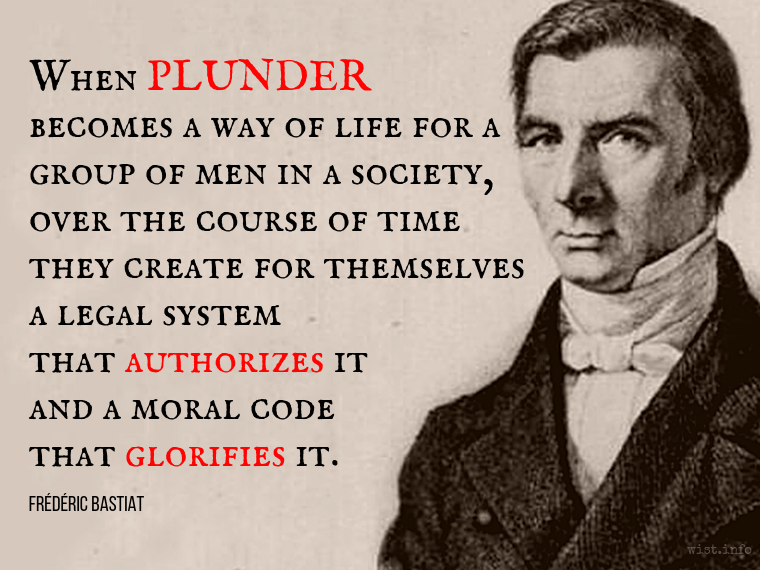JUSTICE, n. A commodity which in a more or less adulterated condition the State sells to the citizen as a reward for his allegiance, taxes, and personal service.
Ambrose Bierce (1842-1914?) American writer and journalist
“Justice,” The Cynic’s Word Book (1906)
(Source)
Included in The Devil's Dictionary (1911). Originally published in the "Devil's Dictionary" column in the San Francisco Wasp (1886-01-09).
Quotations about:
legal system
Note not all quotations have been tagged, so Search may find additional quotes on this topic.
I have lived in one Reign, when the Prince, instead of invigorating the Laws of our Country, or giving them their proper Course, assumed a Power of dispensing with them: And in another, when the Sovereign was flattered by a Set of Men into a Persuasion, that the Regal Authority was unlimited and uncircumscribed. In either of these Cases, good Laws are at best but a dead Letter; and by shewing the People how happy they ought to be, only serve to aggravate the Sense of their Oppressions.
Joseph Addison (1672-1719) English essayist, poet, statesman
Essay (1715-12-26), The Freeholder, No. 2
(Source)
A fine is a bribe paid by a rich man to escape the lawful penalty of his crime. In China such bribes are paid to the judge personally. In America they are paid to him as agent for the public. But it makes no difference to the men who pay them, nor to the men who can’t pay them.
H. L. Mencken (1880-1956) American writer and journalist [Henry Lewis Mencken]
A Little Book in C Major, ch. 4, § 7 (1916)
(Source)
Variants:FINE. A bribe paid by a rich man to escape the lawful penalty of his crime. In China such bribes are paid to the judge personally; in America they are paid to him as agent for the public. But it makes no difference to the men who pay them -- nor to the men who can't pay them.
[A Book of Burlesques, "The Jazz Webster" (1924)]Fine -- A bribe paid by a rich man to escape the lawful penalty of his crime. In China such bribes are paid to the judge personally; in America they are paid to him as agent for the public. But it makes no difference to the men who pay them -- nor to the men who can’t pay them.
[Chrestomathy, ch. 30 "Sententiae" (1949)]
Society is only incidentally and in certain cases regulative, and law is no equivalent to the social order. […] Even in our civilization the law is never more than a crude implement of society, and one it is often enough necessary to check in its arrogant career. It is never to be read off as if it were the equivalent of the social order.
Ruth Benedict (1887-1947) American anthropologist
Patterns of Culture, ch. 8 “The Individual and Culture” (1934)
(Source)
Despite what Hollywood would lead you to believe, we criminal defense attorneys do not advocate lenient sentences for all wrongdoers as a matter of policy. […] Our role is to stand beside our clients, no matter who they are or what they did, and be their advocates, the one person required to plead their case and argue their interests. This is the closest our society comes to grace or humility. It’s grace because we give this support to defendants whether they deserve it by any objective measure, and it’s humility because we know the system is so capable of grave error in accusing and punishing.
Ken White (b. c. 1969) American constitutional and criminal attorney, prosecutor, blogger
“Fault Lines” blog, Mimeslaw.com (8 Jun 2016)
(Source)
When plunder becomes a way of life for a group of men in a society, over the course of time they create for themselves a legal system that authorizes it and a moral code that glorifies it.
[Lorsque la Spoliation est devenue le moyen d’existence d’une agglomération d’hommes unis entre eux par le lien social, ils se font bientôt une loi qui la sanctionne, une morale qui la glorifie.]
Frédéric Bastiat (1801-1850) French philosopher, economist, politician
Economic Sophisms [Sophismes économiques], 2nd Series, ch. 1 “Physiology of plunder Physiologie de la spoliation” (1848)
(Source)
Alt. trans. "When Spoliation has become the means of existence of an agglomeration of men united by social bonds, they soon make themselves a law which sanctions it, a morality which glorifies it."
Nothing could be more grotesquely unjust than a code of morals, reinforced by laws, which relieves men from responsibility for irregular sexual acts, and for the same acts drives women to abortion, infanticide, prostitution, and self-destruction.
Suzanne La Follette (1893-1983) American journalist, author, feminist
Concerning Women (1926)
(Source)
But there is one way in this country in which all men are created equal — there is one human institution that makes a pauper the equal of a Rockefeller, the stupid man the equal of an Einstein, and the ignorant man the equal of any college president. That institution, gentlemen, is a court. It can be in the Supreme Court of the United States or the humblest J.P. court in the land, or this honorable court which you serve. Our courts have their faults, as does any human institution, but in this country our courts are the great levelers, and in our courts all men are created equal.
Whoever desires to found a state and give it laws must start with assuming that all men are bad and ever ready to display their vicious nature, whenever they may find occasion for it.
Niccolò Machiavelli (1469-1527) Italian politician, philosopher, political scientist
The Discourses on Livy, Book 1, Introduction (1517) [tr. Detmold (1882)]
Alt. trans.: "It is necessary for him who lays out a state and arranges laws for it to presuppose that all men are evil and that they are always going to act according to the wickedness of their spirits whenever they have free scope." [Discourse upon the First Ten Books of Livy, Book 1, ch. 3 (1513-18) [tr. Gilbert]]
You ask, What makes it worth defending? and the only answer I can give is this: Freedom to write, freedom to read, freedom to own material that you believe is worth defending means you’re going to have to stand up for stuff you don’t believe is worth defending, even stuff you find actively distasteful, because laws are big blunt instruments that do not differentiate between what you like and what you don’t, because prosecutors are humans and bear grudges and fight for re-election, because one person’s obscenity is another person’s art. Because if you don’t stand up for the stuff you don’t like, when they come for the stuff you do like, you’ve already lost.
Neil Gaiman (b. 1960) British author, screenwriter, fabulist
Blog entry (2008-12-01), “Why defend freedom of icky speech?”
(Source)













